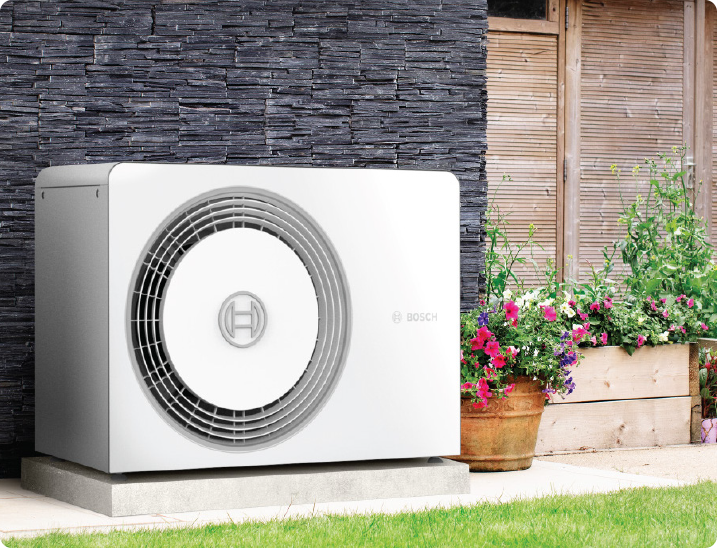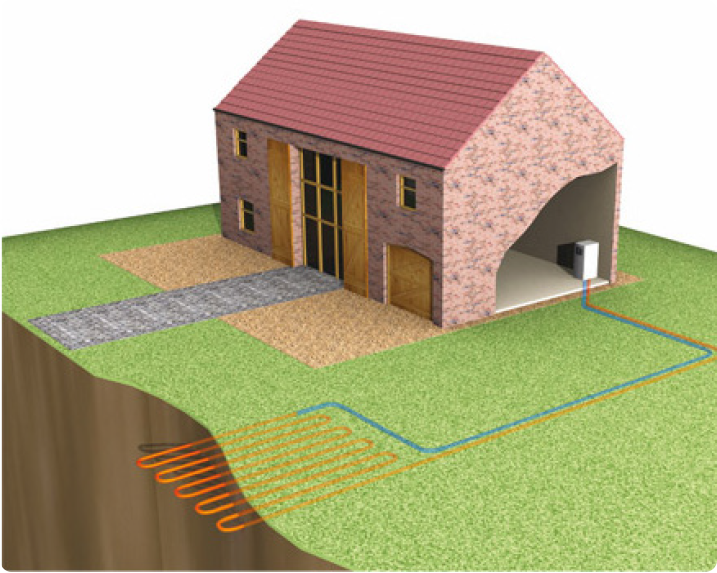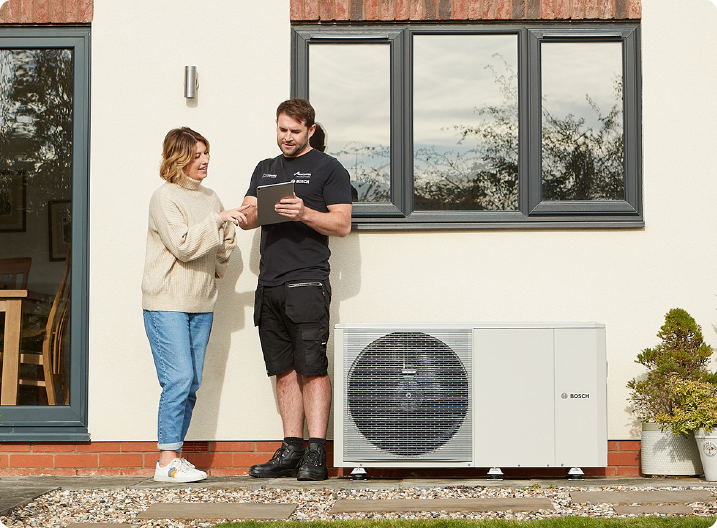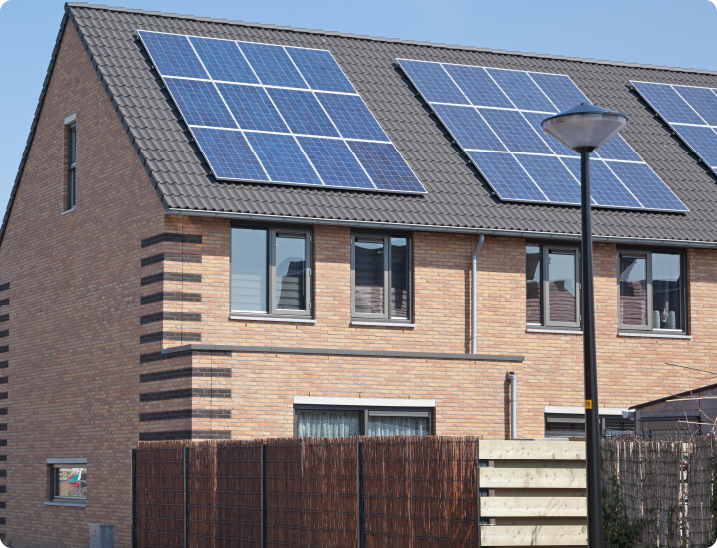Make your home
energy efficient with
a low carbon footprint
Take the leap into becoming energy efficient with our renewable
installation services of Solar Panels and Heat Pumps.
Air Source Heat Pumps
An air source heat pump is a renewable heating system that uses electricity to take warm air from outside and uses it to supply your home with heat and hot water.
Heat Pumps are more energy efficient than conventional methods of heating your home. If you are looking to make home improvements or are building your dream home and want to reduce your carbon footprint and your energy bills, Heat Pumps offer an excellent long-term solution.
They are suited to a variety of different building types and locations and can offer a cost-effective and environmentally friendly way of keeping your home warm.


Ground Source
Heat Pumps
A ground source heat pump may be the best solution to heating your home, depending on the size of your property and the access to the ground.
Heat pumps can be suitable for almost all types of home and could save homeowners a small fortune in energy bills. A heat pump basically transfers heat from a colder area – usually outside – raises the temperature and then transfers this heat into the home. This method is far more energy-efficient than a traditional gas boiler and has the added advantage of producing far fewer carbon emissions, making it much
more environmentally friendly.
Once installed, they need no more maintenance than traditional boilers (we recommend an annual service).
You may be eligible to receive government funding to help with the cost of supply and installing a ground source heat pump.
Government Funding for
Heat Pumps
The Boiler Upgrade Scheme is a government incentive that will assist with the upfront cost of upgrading your heating system with one of our air to water and ground source heat pumps.
In addition, there is now no VAT on heat pumps – reducing the cost even further.
What grants are available?
Your installer will apply for the grant on your behalf. You can receive:
- £7,500 towards a ground source heat pump
- £7,500 towards a ground source heat pump (including water source heat pumps and those on shared ground loops)
- £5,000 towards a biomass boiler


Solar Thermal
Solar thermal installations utilise sunlight to heat water or air, such as hot water or space heating. By capturing solar energy through collectors, these systems efficiently convert sunlight into usable heat, which is then stored for later use. They offer numerous benefits, including reduced energy costs, lower carbon emissions, and increased energy independence, particularly in sun-rich areas.
DB Heatings experienced team ensures each installation is optimised for maximum efficiency and reliability, enabling our customers to enjoy the advantages of clean, renewable energy for years to come.
See our frequently asked Renewable questions
Here is our frequently asked questions, find answers below Plumbing questions
A heat pump extracts heat from the air, ground, or water and transfers it into your home for heating and hot water. It uses a refrigerant system to absorb and compress heat, making it a highly energy-efficient and eco- friendly heating option.
Heat pumps are most effective in well-insulated homes with low heat loss. They work particularly well with underfloor heating or large radiators. During an assessment, we’ll determine whether a heat pump is a good fit for your property.
Heat pumps require minimal maintenance, such as cleaning filters and ensuring external units are free of debris. We recommend an annual service by a qualified technician to ensure optimal performance and efficiency.
In many cases, yes. Heat pumps can serve as the primary heating source for most homes. However, in very cold climates, a hybrid system combining a heat pump and a boiler may be the most efficient solution.
